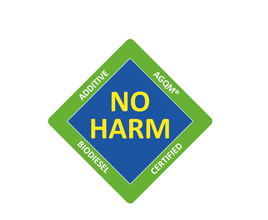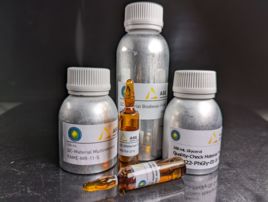
-
Why are additives used in fuel?
-
Test criteria no-harm test biodiesel flow improvers
-
How can I have my additive tested?
-
No-harm list for biodiesel flow improvers
Why are additives used in fuel?
A large number of different additives are used in fossil and renewable fuels with the aim of positively influencing their properties. In biodiesel, mainly oxidation stabilizers and flow improvers (Biodiesel Flow Improver - BDFI) have been used to date. Cold stability and cold operability are important quality parameters of fuels. BDFI can be added to improve the cold resistance of biodiesel. These modify the rhombic crystals that are formed below the cloud point into needles of a smaller size. The crystals formed in this way are much more difficult to aggregate and the fuel can pass through the filters for much longer. This means that the cold filter plugging point can be lowered and the vehicle can be operated even at lower temperatures.
In cooperation with the mineral oil and additive industry, test criteria have been defined on the basis of which flow improvers for FAME can be tested for unwanted interactions.
Test criteria biodiesel flow improvers
The no-harm test for biodiesel flow improvers comprises the following test criteria:
- Compliance with predefined minimum requirements (B100)
- XUD9 test, according to CEC F-23-1-01 (B10)
- Filtration test according to DGMK 663 (B10)
- Engine oil compatibility test according to DGMK 531-1 (mod.; B10)
- Corrosion test according to ASTM D 665-06, method A (B10)
- Foam test according to NF M 07-075 (B10)
- Emulsion test according to ASTM D7451 (mod.; B10)
The most important minimum requirement is that the Cold Filter Plugging Point (CFPP) must not deteriorate compared to the unadditised FAME at the dosing rate of the additive recommended by the manufacturer. Furthermore, the safety-related properties of the biodiesel (e.g. flash point, water hazard class, etc.) must not change and the limit values of EN 14214 for biodiesel must continue to be complied with after additivation. As a special challenge, interaction tests are carried out with three biodiesel flow improvers that have already been successfully tested. Engine, filtration, engine oil compatibility, corrosion, foam and emulsion tests are then carried out in a B10 blend (diesel fuel with 10% (V/V) biodiesel).
Products that pass all test criteria are included in the no-harm list for biodiesel flow improvers. For each successful additive, a certificate is issued containing all no-harm test results. If interested, this certificate can be requested from the relevant manufacturers. The no-harm list with all successfully tested BDFI is available free of charge on request.
Interactions with the company-specific additive packages are not analyzed in this context.
How can I have my additive tested?
Would you also like to have one of your products certified? Then register here.
No-harm list for flow improvers
We will be pleased to provide you with a personalized copy of the BDFI no-harm list free of charge.
Please complete the form below and we will send you the list as a pdf file by e-mail for your personal use.





